Under the hammer: Visordown guide to auctions
Visordown’s guide to bidding at auction

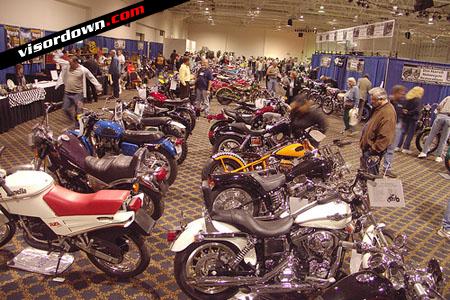
Auction rooms are exciting places...get there early
MOST OF us have owned a secondhand bike at sometime in our riding career, either bought from a dealer, as they offer warranty and finance packages, or from a private individual. But have you ever considered buying a bike at auction?
Like any form bike purchase, motorcycle auctions have their strengths and weaknesses. On the one hand there's no pushy salesman armed with tempting finance packages but neither is there usually any warranty or comebacks on the bikes up for grabs. And even though there's no fixed sale price, don't always expect to walk away with a bargain. It's worth getting hold of a motorcycle value sales guide and swotting up on the market before attending an auction. They can be found at most reputable newsagents.
Most auctions have a sales programme, which can usually be bought from the front desk or downloaded from the internet for a few quid. The programme lists the bikes to be auctioned, so if the machine you're after isn't there then you've saved yourself a wasted trip. The programme should also give brief details about the machines' age, mileage and sometimes the reason for sale (repossession, deceased etc.). If you're keen, it's worth jotting down how much each bike sells for, as it gives you a reference for future auctions.
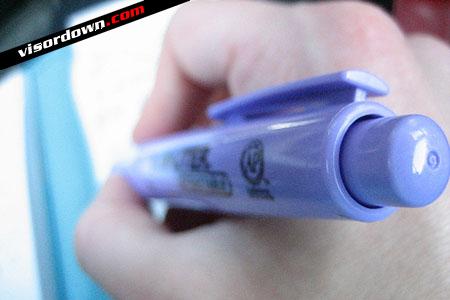
Keep a note of sale prices for future reference
General auctions
Motorcycle auctions take place at venues all across the country. British Car Auctions (BCA) run the UK's largest operation with a number of their centres operating at least one dedicated motorcycle auction a month. Hundreds of motorcycles are sold through BCA's auctions every year, ranging from nearly new sportsbikes to well-used trade-ins. Finance repossessions also account for some of BCA's business, too.
Classic auctions
If you're looking for something a bit out of the ordinary then a trip to Bonhams is a good place to start. The company are worldwide auctioneers, catering for classic bike enthusiasts looking for rare exotica rather than everyday roadbikes. Sale prices usually range from a few hundred pounds to a few hundred thousand for vintage stuff with history. Always fancied an ex-Sheene racebike? Bonhams is your answer.
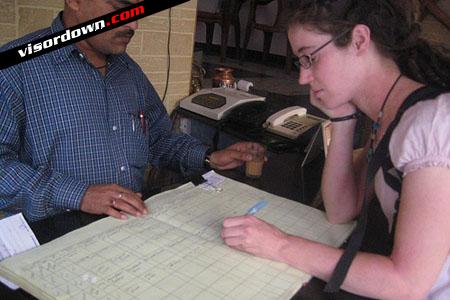
Most auction houses will insist you register to bid
Registration
The days where punters could rock up to an auction and take part willy-nilly are all but over. Most auction houses now insist prospective buyers register before the auction if they want to bid, mainly for security purposes. Bidders are then given a number, which gets quoted to the auctioneer if they're the highest bidder when the hammer goes down. Bidders must also leave a deposit when registering, to ensure they cough up when the sale's closed - even if they've had second thoughts.
Commission
Commission rates or buying fees depends on which auction house you buy from, and they vary drastically, so it's worth doing your sums before you start poking your arm in the air. Bonhams charge 15% buyer's fee on the hammer price plus VAT but some companies will haggle if you ask. I bought a 1989 RG500 at one of Bonhams auctions a while back, thinking £3500 was a fair price for a one-owner appreciating classic, only to find the final invoice came to just over £4100. Gulp.
Inspection
Once you've decided which auction you're going to attend, ask for the viewing times. Some open the day before, others the morning of the auction, so get there early so you can have a good look around. The majority of auction houses run a 'old as seen' policy, so you'll need to give any prospective purchases a thorough once-over, as you'll have zero comeback once the auction ends. Auction rooms are usually busy, bustling places full of punters after a bargain, so it's easy to miss something you only later spot when the bike's back at your home. Amongst the decent, honest machinery there's usually a few complete nails lurking to snap up inexperienced buyers. Some will be obvious, some won't. Be wary of tatty stuff that's been tarted up. If you can't tell the difference then an auction may noy be the best place for you. Take along a knowledgeable friend if you can. Online autions have their benefits (more of that another time) but nothing beats inspecting a prospective buy with your own eyes.
Paperwork
Ask the auctioneers to see any paperwork that accompanies your prospective purchase. Sift through it thoroughly to ensure mileages, service history and frame/engine numbers tally. A Ducati 916 with a full history will be a far safer buy than one with diddly squat.
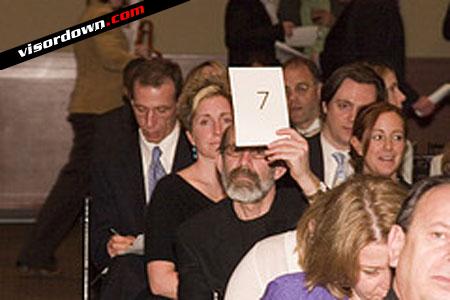
Wait until the last moment to place your bid
Bidding
Placing your first ever bid is a pretty intimidating experience. Expect everyone to stare - it's not unknown for rival punters to flash the odd glare either. It's tempting to jump straight in with a bid when the bike you've been eyeing up all day gets wheeled into the sales arena - but keep your powder dry - timing is everything. It's best to wait until the early bidders, who think they're going to get it for bugger all, have dropped out. Leave it until the last minute to get involved, as you'll only drive the price up if you jump in early. Try to avoid showing too much interest in the bike you want - even if it's the machine of your dreams - as some bidders will cotton on you're in love and drive up the price for a laugh. Sad but true.

Found the bike you like? Don't let the world know
Bidding wars
Bidding wars, where two buyers are hell bent on owning the same machine, can escalate a bike's value way beyond the machine's book price, so it's vital you know your onions before taking part. Pick a maximum price you're prepared to go to and stick to it. Like superglue.
Aren't they all nicked?
Not so long ago auctions were deemed seedy, shady places ideal for offloading dodgy machinery. Thankfully the industry's cleaned its act up over the last few years. Buyers and sellers must register with a form of ID and give a fixed address, so the chances of buying a ringer have been greatly reduced.
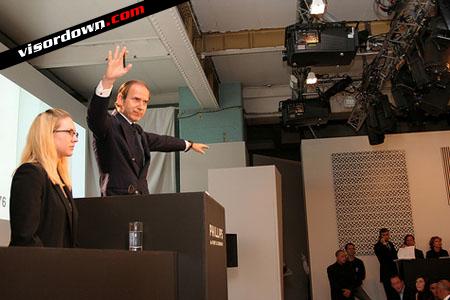
"Going twice!" - now's the time to make your move
Auction know how
Buy or download a sales programme
Ask about commission/buying fees
Get there early
Take a knowledgeable friend (optional)
Inspect the bike thoroughly
Check the paperwork tallies
Pick a maximum price you'll go to
Stick to it
Avoid bidding wars
Golden rule
Leaving an auction empty handed is a pretty soulless experience but don't feel you have to buy just because you're there. Save it for another day if you don't see the machine you want.







